
 |
|
HOME | MOVIES The controversy surrounding Shashilal Nairís Ek Chhotisi Love Story has become a badi source of curiosity. Originally planned as a two-print release in Mumbai and New Delhi, the filmís distributor Shringar Films released 76 prints in 93 theatres all over the country, thanks to the fuss created by actress Manisha Koirala over an innocuous love scene. Does controversy help sell tickets at the turnstiles? Subhash K Jha looks at 10 controversial films through the years. Design: Uday Kuckian |
|
|
||
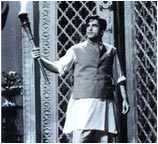 |
Dharamputra (1961) Yash Chopraís directorial debut involved two families -- one Hindu and the other Muslim -- living in harmony until Partition rips them apart. The film immediately triggered off communal strife all over the country. What incensed fundamental forces was the idea of a Muslim man falling in love with a Hindu girl. Irate mobs disrupted screenings of the film all over the country and it was taken off even before it was properly screened. Chopra vowed never to make a controversial film again.
|
|
|
|
||
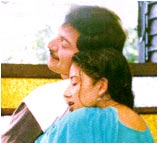 |
Bombay (1995) It was Shekhar Kapur who once said 'intercommunal romances are okay. But never a Hindu-Muslim liaison.' The perennial rule breaker Mani Ratnam broke the unwritten law when he showed his Muslim heroine Manisha Koirala eloping and marrying his Hindu hero Arvind Swamy and getting trapped in the vortex of the 1993 Mumbai riots. The film had a Bal Thackeray-like figure played by Tinnu Anand. The Shiv Sena supremoís consent was sought over-and-above the official Censor Board before the filmís release. All hell broke loose after Bombayís release. Theatres screening the film were threatened with dire consequences and a bomb was hurled at the director at his home in Chennai. Who said filmmaking is a safe endeavour?
|
|
|
|
||
 |
Bandit Queen (1994) Films about real-life folk always land in a soup. Shekhar Kapur's Bandit Queen, based on the life of bandit Phoolan Devi, was bogged down by controversy, but won awards and did well in some Indian cities. Whether people saw the film to appreciate a chronicle of Phoolan Deviís harrowing life or to see nude and gruesome scenes is a moot point.
|
|
|
|
||
 |
Fire(1997) Deepa Mehta's film about a lesbian relationship between two lonely sisters-in-law in a Delhi business family faced much protest. The love making scene between Shabana Azmi and Nandita Dasí body double still shocks. No mainstream film has celebrated homosexual love so explicitly.
|
|
|
|
||
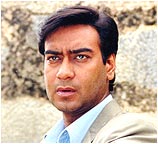 |
Zakham (1999) Mahesh Bhattís autobiographical swan song about his Muslim motherís unconditional love for her married Hindu lover was an elegiac exposition on the psychology of estrangement. For some reason, it was converted in the public mind into a treatise on communal riots. In fact, the filmís power and strength were derived not from scenes of riots but the powerful mother-son bonding, expressed with deep empathy by Pooja Bhatt. Strange, how the wrong projection can destroy a filmís impact.
|
|
|
|
||
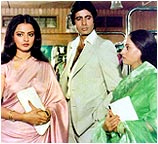 |
Silsila (1981) Yash Chopra cast Amitabh Bachchan, Jaya Bhaduri as man and wife, and Rekha as the 'other woman' who threatens their marriage. The press smelled a scoop. The theme of adultery was sensitively handled in the film. If only the media had focused on the characters rather than the actors, the film would have got its due.
|
|
|
|
||
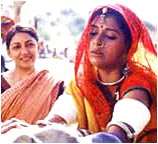 |
Bawandar(2001)
Sandstorm over sleaze? The celluloid transcreation of Bhanwari Devi's gangrape by upper caste landowners in Rajasthan smacked of sensationalism. Director Jagmohan Mundhra made sure the rape was graphic enough to send leading lady Nandita Das scurrying for cover. The more explicit portions were shot with a double.
|
|
|
|
||
 |
Hey Ram!(1999)
Kamal Haasanís millennium-end paean to Mahatma Gandhiís hand in the breach of the country took us into an amazing pseudo-realistic trip on a historical rollercoaster. The epic is so steeped in hidden meaning that it takes several viewings to absorb it entirely. The debate on the film being 'anti-Muslim' and 'anti-Gandhi' seems bogus in hindsight.
|
|
|
|
||
 |
City Of Joy(1992)
Some films get into a controversy even before they hit the theatres. Director Roland Joffe suffered this fate when Kolkata was up in arms against his film. Joffe, the critics complained, had depicted the city in bad light. Shabana Azmi shouted herself hoarse against the protests. Unfortunately, no one was listening. The film bombed at the box-office. Ironically, The City Of Joy was not as anti-Kolkata, as it was made out to be.
|
|
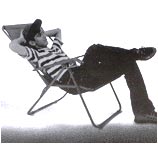 |
Ek Chhotisi Love Story (2002)
Manisha Koirala wanted people to be warned against the film. Instead, they rushed to the theatres for a glimpse of 'those' kinds of scenes. Though the film is no longer screened in Mumbai theatres, it is unlikely to do well at the box-office. After the initial excitement, the film is bound to fizzle out, as is the case with most controversial films.
| |
|
|
||
|
HOTEL RESERVATIONS | EDUCATION | PERSONAL HOMEPAGES | FREE EMAIL | FEEDBACK |